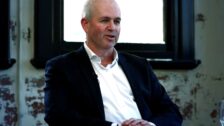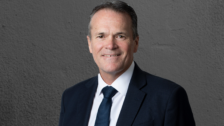Super funds back to breakeven – the members?
Superannuation research house Chant West released their latest update on the performance for the September quarter. Industry groups quickly jumped on the news highlighting the fact that “nearly eight months after the COVID-19 crisis, superannuation funds have clawed back nearly all of the losses”, according to Research Director Mano Mohankumar.

Looking closely at the data, there are a number of key takeaways for financial advisers and investors alike. Let’s begin with overall performance, where the Median Growth option, which holds 60-80% in growth assets (widely called a Balanced option in the industry) delivered a return of 2.0% for the quarter. The actual ‘Balanced’ option was slightly lower at 1.7% due to its 40-60% allocation to growth assets.
The biggest driver of returns for the quarter was the allocation to overseas assets, but particularly US and Asian equities. On a hedged basis global shares were 6.9% higher and 3.8% for unhedged strategies, according to Mohankumar, reflecting the greater growth opportunities. Closer to home, the ASX 200 fell 0.4% for the quarter, despite Australia’s outperformance in battling the Coronavirus.
According to Mohankumar ‘Growth funds have erased most of the 12 per cent loss experienced in February and March’. The strong September quarter result has sent the median growth option to a loss of just 0.7 per cent for the 12 months with the Balanced option offering no returns at all, flat at 0.0 per cent. Therefore, any advisers or balanced funds out there that have delivered a positive return would be worth every dollar in additional fees after successfully negotiating the most difficult investment environment in a generation, better than the most well-resourced groups in the country.
What the analysis does not cover, is how the members of these funds performed. This likely sounds like a vexed question, surely, they received the same return as the fund themselves? Unfortunately, not. As is the case for both managed funds and super funds, a large cohort of members tends to underperform the assets they are invested in because they attempt to ‘time the market’. This issue has been exacerbated by the consistent outsourcing of help desk, financial advisery roles, and investment switching roles.
Consider for instance Australian Super’s recent comments to the Senate Committee, in which they confirmed over 76,000 members opted to switch their investment options in a 21-day period covering the worst of the market falls. Now, this doesn’t confirm which options these people switch to, but having had many firsthand conversations with Australian Super members in March, it would be safe to assume most went to cash.
There is a natural reaction to avert losses in times of crisis. It is this reaction that causes investors to think that moving to cash when markets are falling is the only way to ‘protect their capital’ when in fact they are doing the exact opposite. This reaction can’t be overcome via an automated call centre, website bots or through irregular member communication. It requires real life handholding, interaction and difficult discussions at difficult times, something modern financial advisers are well skilled in despite growing pressures on the industry.
Consider for comparison the experience of AMP, who indicated just 91 members switched options in February and 233 in March. The clear difference being AMP members are attached to an adviser, albeit in some cases whether they like it or not.











